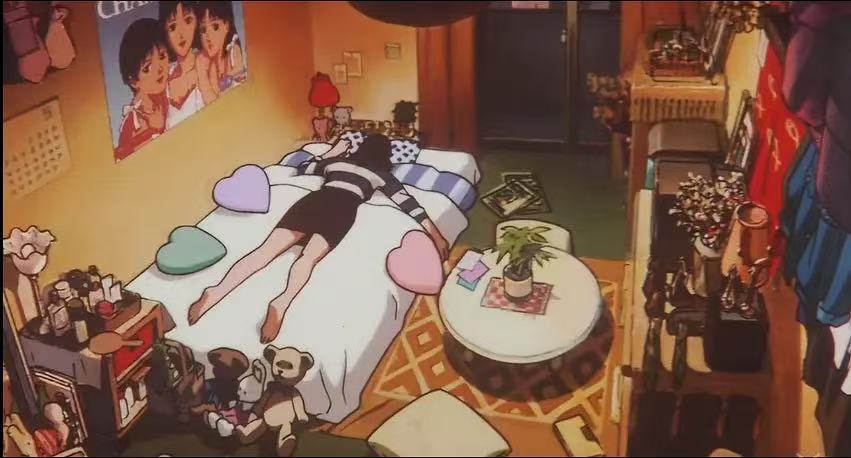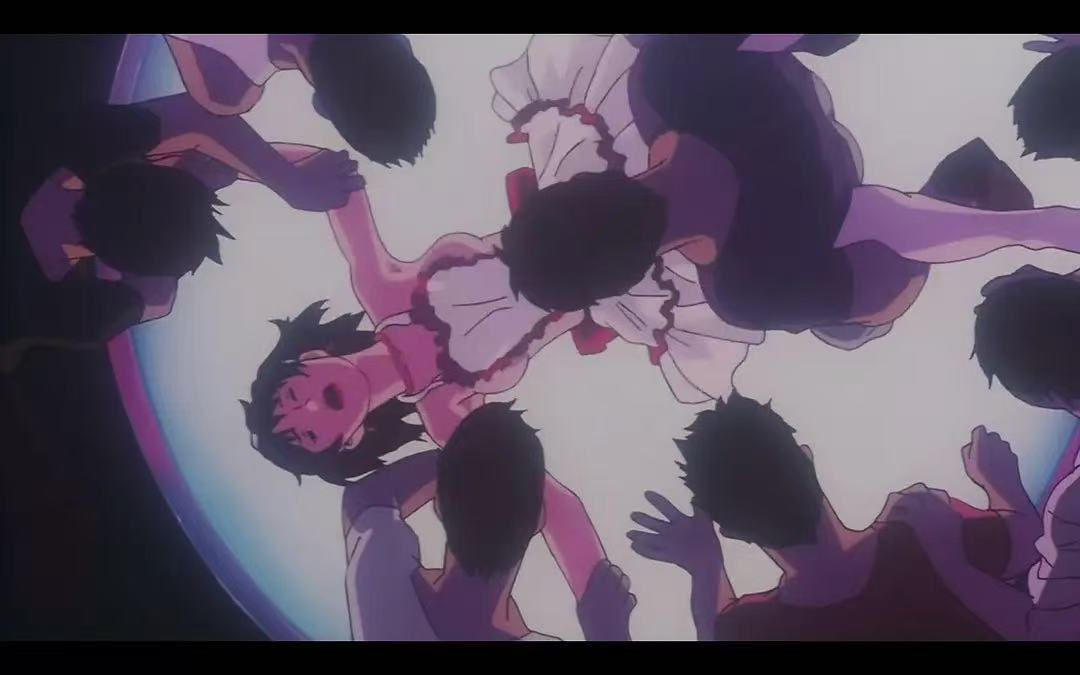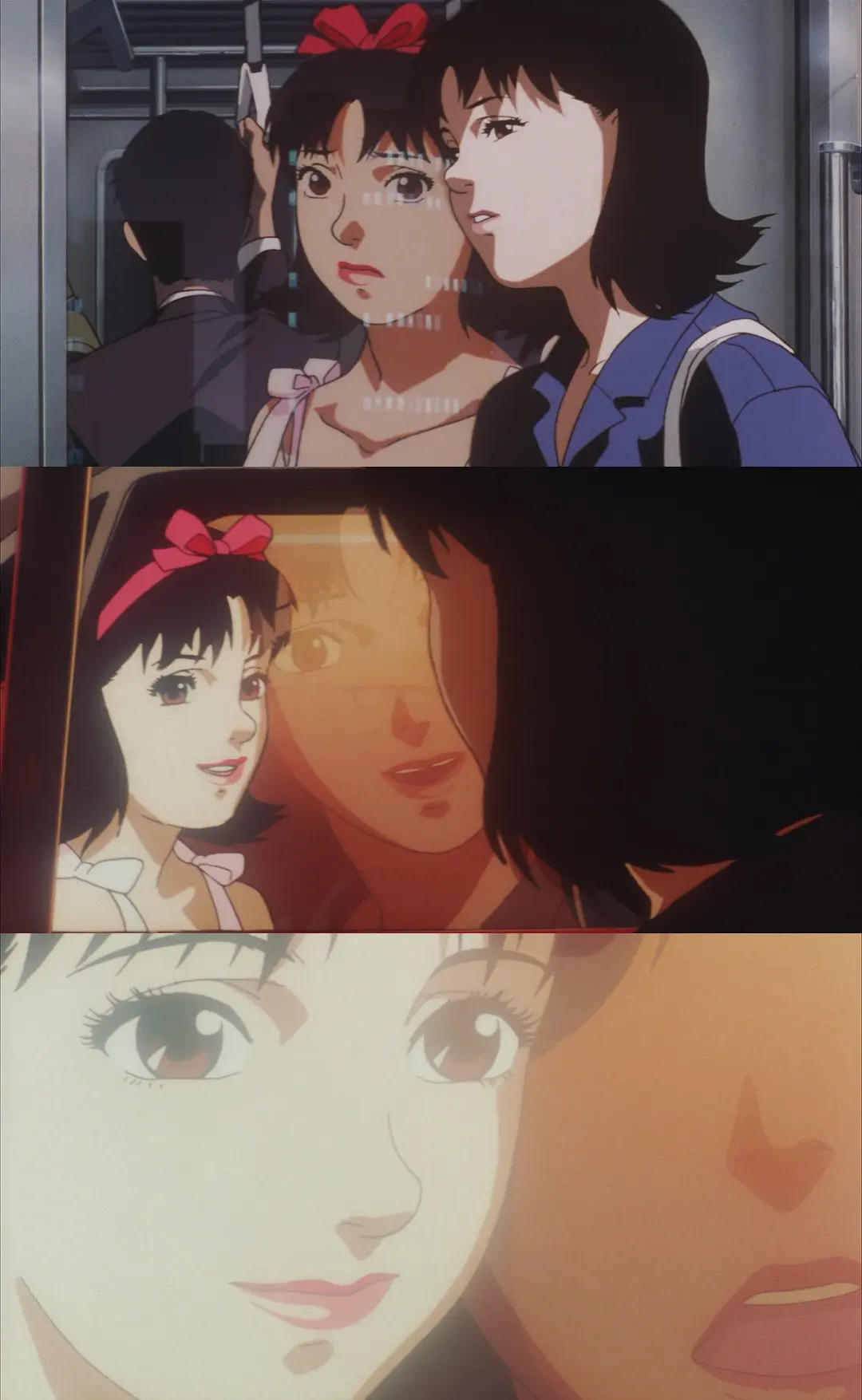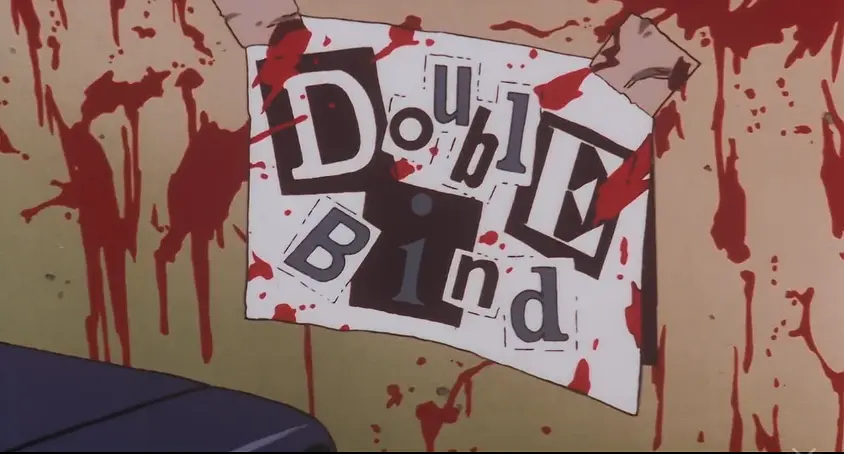Perfect Blue:双重束缚
上周看了一部97年上映的动画电影,《未麻的部屋》,英文名是perfect blue。去之前我不知道这个片子,但是据朋友讲它其实很出名,包括black swan都有借鉴这部片。 看了之后果然感觉很受震撼,不愧是神作。
以下是轻微剧透。
未麻是一个从外地来东京逐梦的小爱豆,跟其他两个女孩组了个女团,但她们的歌连排行榜前一百都没进过,日常也就开开几十个人那种的小公演,生活里她也只能住小小的一间studio。 为了破局,经纪公司决定让人气稍高的未麻从组合毕业,转行到电视圈。但是估计日本的爱豆和演员之间也有壁,转型初期的未麻只能接到只有一句台词的小角色。 内麻其实并不确定演员是否真的是一条正确的路,但虽然内心郁闷,对外她表现得还是很元气,一句台词也反复练习。加上经纪人的争取,慢慢也混上了三五句台词。

内麻自己在纠结要不要从爱豆转型成演员,她原来的粉丝更是反应激烈,恐吓信直接寄到了片场,跟踪狂出现在她生活的不同场合。 但是开弓没有回头箭,经纪人求来的加戏竟然是漏点的强暴戏,戏外还安排她拍裸体写真。再加上剧情本身就是凶杀案,未麻仿佛慢慢入戏了,精神渐渐恍惚。 在她的梦里出现了一个还在当爱豆的自己,依旧元气满满,但结局又总是血腥暴力。而现实当中,给她写强暴戏的编剧和给她拍写真集的摄影师相继被虐杀。

工作之外,千禧年的互联网方兴未艾,有粉丝创立了一个博客,以未麻的口吻更新她每天的行程和心情,很多粉丝都以为这是未麻本人在更新。 精神恍惚的未麻哪里经受得了电子鸦片,她的行为慢慢也受到博客内容的影响,博客里前一天更新的内容,第二天她自己下意识就做了。
一切都已经混乱,电视剧的情节、梦、现实、博客里的描述、镜中的倒影交织在一起,画面不停切换,未麻不停惊醒,观众已经不知道哪里是真哪里是假。最后当然是爆发,爱豆未麻如鬼魂般现身,一路追杀未麻。 一番搏斗之后面具滑落,真凶现身,结局。

故事里,未麻出演的那不电视剧叫做double bind(双重束缚)。这是一个心理学概念,暗示未麻无论怎么做,都是“错”的:一方面,她想摆脱“清纯偶像”的形象,成为成熟的演员; 另一方面,她又承受着粉丝和社会的期待,被要求维持“完美女孩”的形象。她既不能自由选择,也无法逃脱,最终产生幻觉,最终陷入精神危机。

从故事延伸出去,浅层来想,这是每一个爱豆光鲜生活背后需要面对的困境,从钟铉到雪莉,这样的故事依旧在重复。往深里想,我们每个人在工作中都难逃双重束缚,不管怎么做都觉得是错的。 好的故事让我们每个人都能看到自己身处的困境吧。

👁️ 0 views